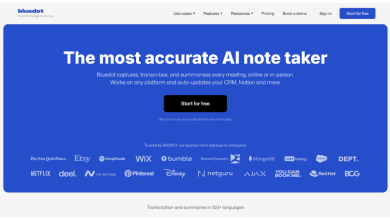
Finance has outgrown the spreadsheet. Once a function defined by data collation and historical reporting, it is now evolving into a forward-looking intelligence hub. At the heart of this shift is AI — not as a flashy add-on but as a deeply embedded force reshaping how finance teams think, plan, and act.
Pattern Recognition at Scale
Finance functions deal with thousands of data points daily, many of which are repetitive, noisy, or disconnected from each other. AI excels at absorbing these volumes, spotting patterns the human eye might miss — and doing it in real-time.
This means faster anomaly detection, smarter forecasting, and early risk identification. Instead of retrospective analysis, finance leaders can preempt disruptions, adjust to dynamic market forces, and even identify underutilised capital or operational slack before it shows up in traditional reporting.
Decision-Making Gets a Neural Upgrade
Beyond automation, AI is increasingly valuable in decision augmentation. AI models trained on internal and external data sets can surface insights CFOs might not have considered — correlations between pricing strategy and churn, or how supplier volatility could cascade into cash flow.
This isn’t about replacing judgment; it’s about equipping finance with a sharper lens. Strategy sessions become less about reconciling reports and more about scenario modelling and trade-off analysis — where AI can quickly simulate the downstream effects of each move.
New Signals, New Strategies
Traditionally, finance strategies have been guided by lagging indicators — what already happened. AI tools are changing this by incorporating alternative data sources like sentiment analysis, global shipping activity, and even ESG performance signals.
These new inputs allow finance to advise on growth from a much broader context. Imagine adjusting revenue targets based not only on bookings but also on customer satisfaction trends, seasonality, and macroeconomic pulses — all synthesised through AI models. It’s a level of granularity and agility that spreadsheets can’t match.
Preparing for Compliance Shifts
While strategic growth is top of mind, compliance remains a non-negotiable. The tax landscape is evolving, and digital readiness is no longer optional. With HMRC moving toward making tax digital for income tax, forward-thinking CFOs are seeing this not as an IT headache, but as an opportunity to re-architect their finance stack with intelligence at the core.
Rather than simply meeting new digital record-keeping rules, AI-driven finance platforms can turn compliance data into value. For instance, by analysing tax submissions in real-time, AI can flag errors, suggest optimisations, and align reporting with cash management strategies — adding a layer of strategic clarity to what was once a back-office task.
From Reporting to Revenue Enablement
AI also repositions finance teams as active contributors to growth — not just interpreters of performance. By merging financial data with operational and market signals, AI helps finance leaders guide product investment decisions, optimise go-to-market budgets, and find the most capital-efficient pathways to expansion.
The finance function becomes a growth partner — not because it “embraced digital,” but because it built systems that think forward.
AI is not a silver bullet, but it does reframe what finance is capable of. In a business environment defined by speed, complexity, and constant recalibration, the companies that win will be those where finance stops just tracking performance — and starts shaping it.



